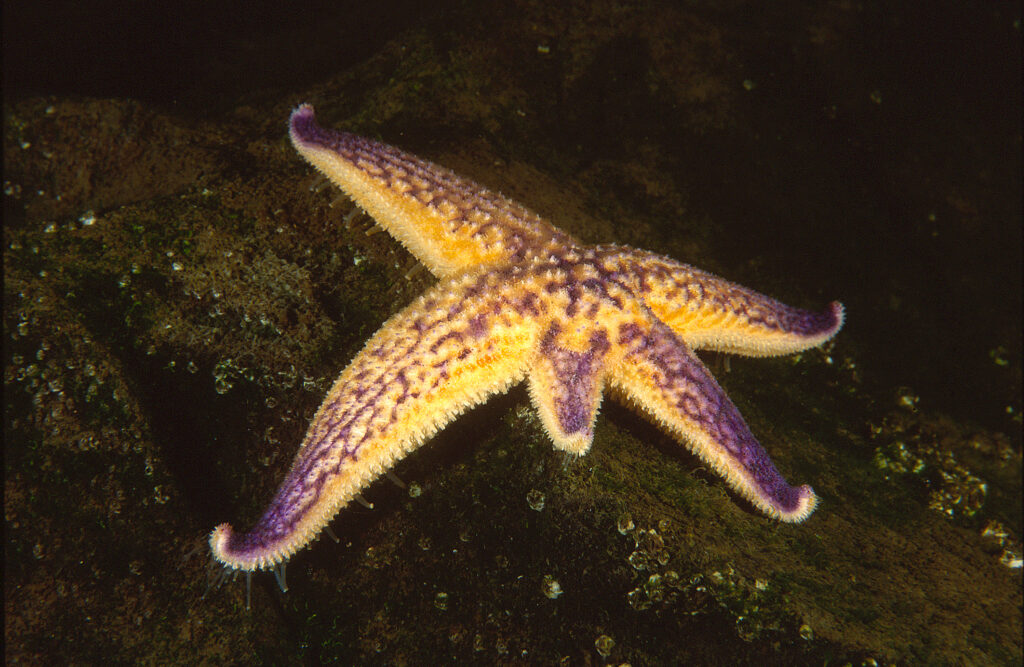The value of DNA reference sequences to marine biosecurity

The Northern Pacific seastar is considered a serious pest of native marine organisms in Australia and is a major factor in the decline of the critically endangered spotted handfish
Over 80 per cent Australia’s population live within 50 kilometres of the coast. Marine and coastal ecosystems play a valuable part in Australia’s society and blue economy, including tourism and marine industries worth over $68 billion per annum1.
Marine pests are a major threat to Australia’s blue economy and can have significant environmental, economic, cultural and social impacts2.
Once established, eradication of marine pests is difficult and costly. Prevention is better than cure!
DNA-based surveys such as eDNA are emerging as crucial tools for protecting marine assets because of their reliability and cost-effectiveness3. Many jurisdictions and industry proponents currently undertake DNA-based surveillance of ports and harbours and high priority areas like marine parks and commercial fish nurseries.
But the effectiveness of surveillance is limited by the lack of reference DNA sequences for pest species. This means pest species often can’t be reliably distinguished from native species4 until they have established a substantial foothold.
What difference would a complete DNA reference library make?
- Rapid, sensitive pest detection systems could be standardised Australia-wide.
- A complete DNA reference library would tell us what DNA sequences we need to “look” for to identify pests, thus improving the accuracy of pest detections.
- Sensitive DNA-based diagnostic tests for pests could be developed quickly.
Benefits for Australia
- Reduced risk of pest incursions through timely interventions and management.
- Lower costs of monitoring pest species.
- Reduced economic, environmental, cultural, and social impacts of pests.
References
- AIMS. The AIMS Index Of Marine Industry. 31 (Australian Institute of Marine Science, Townsville, Australia, 2018).
- Brown, A. et al. MarinePestPlan 2018–2023. (Marine Pest Sectoral Committee (MPSC), 2018).
- Jarman, S. N., Berry, O. & Bunce, M. The value of environmental DNA biobanking for long-term biomonitoring. Nature Ecology & Evolution 2, 1192‑1193, doi:10.1038/s41559-018-0614-3 (2018).
- Deveney, M. Personal communication, Marine Biosecurity Subprogram Leader, South Australian Research and Development Institute, (2021).
